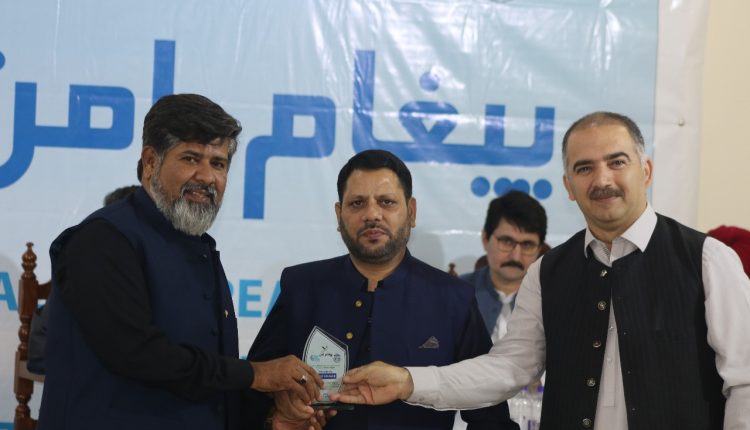Peshawar: The Institute of Peace and Conflict Studies (IPCS) at the University of Peshawar, in collaboration with the Human Rights Council of Pakistan, organized the “Paygham-e-Aman (Message of Peace) 2025” Conference under the theme “A Call for Peace, Dignity, and Justice through the Lens of Human Rights.” The event brought together academics, human rights advocates, policymakers, government officials, and peace activists to explore ways of promoting sustainable peace through a human rights-based approach.
Mr. Jamshaid Hussain, Chairman of the Human Rights Council of Pakistan, opened the conference by highlighting the organization’s ongoing efforts to advance human rights awareness, accountability, and protection across Pakistan. He emphasized that promoting human dignity and equality remains essential to achieving lasting peace.
Dr. Jamil Ahmad Chitrali, Director of the Institute of Peace and Conflict Studies, University of Peshawar, presented on “Human Rights as a Foundation for Sustainable Peace: Global Lessons and Local Realities.” He underscored that peace cannot exist without justice and equality, noting that strong institutions and inclusive governance are vital for protecting basic rights and fostering social harmony.
Mr. Imtiaz Wani, Leader of the All Parties Hurriyat Conference (APHC), addressed the topic “Human Rights and Self-Determination: The Path Towards Regional Peace and Stability.” He emphasized that durable peace in South Asia is inseparable from the protection of fundamental human rights. Highlighting unresolved conflicts—especially the Kashmir issue—he called for dialogue, mutual respect, and justice as the guiding principles for regional stability.
Dr. Darvish Afridi, Faculty of Political Science, discussed “Challenges to Implementing Human Rights-Based Governance: Accountability and Inclusion.” He explained that transparent governance, social participation, and institutional accountability are cornerstones of peaceful societies. Dr. Afridi encouraged youth engagement and academic contribution in shaping a governance system grounded in equality and justice.
Dr. Akhtar Ali Shah, former Inspector General of Police, former Secretary of Home and Tribal Affairs, and current Chairman of the Good Governance Forum, shared his insights on “Policy Reform and Institutional Efforts for Peace Building and Rehabilitation in the Tribal Regions.” He reflected on the ongoing process of integrating tribal areas into the national framework and highlighted the importance of policy continuity, institutional reform, and citizen trust-building for long-term peace and stability.
Harmeet Singh, journalist and social activist, highlighted the “Role of Media in Strengthening Peace Narratives and Promoting Social Cohesion.” He emphasized the media’s responsibility to counter hate speech, misinformation, and extremism through fact-based reporting and inclusive storytelling. He added that a responsible media landscape can play a transformative role in bridging divides and fostering interfaith harmony.
Razi Tahir, senior journalist, echoed similar sentiments, noting that “media is both a mirror and a mediator.” He urged journalists to promote empathy, tolerance, and balanced reporting to support peaceful discourse in conflict-sensitive regions. He also commended young journalists for taking an interest in human rights and peace communication.
The conference concluded with closing remarks from a representative of the Human Rights Council of Pakistan, who appreciated the active participation of all speakers and attendees. The session reaffirmed that sustainable peace requires collective efforts rooted in human rights, justice, and dignity. The event ended with a group photo and informal networking over refreshments.

